Mistakes don’t really matter. Or so we like to tell ourselves.
But some actually do. Every now and then, someone manages to mess up so spectacularly that it changes the entire course of history. And while the results are sometimes catastrophic, others end up reshaping the world for the better.
Below are some of the most unforgettable moments where things didn’t go as planned and everything changed because of it.
#1 The Burning Of The Library Of Alexandria
The Library of Alexandria in Egypt was home to over 40,000 papyrus scrolls and was one of the biggest, most significant libraries of the ancient world. Approximately 2,000 years ago, it was ravaged by an enormous fire that decimated all the pieces it housed, including those by Socrates and Horner. While the exact cause of the fire isn’t known, some believe that Julius Caesar mistakenly started the fire that burned it down in 48 BC during his civil war.
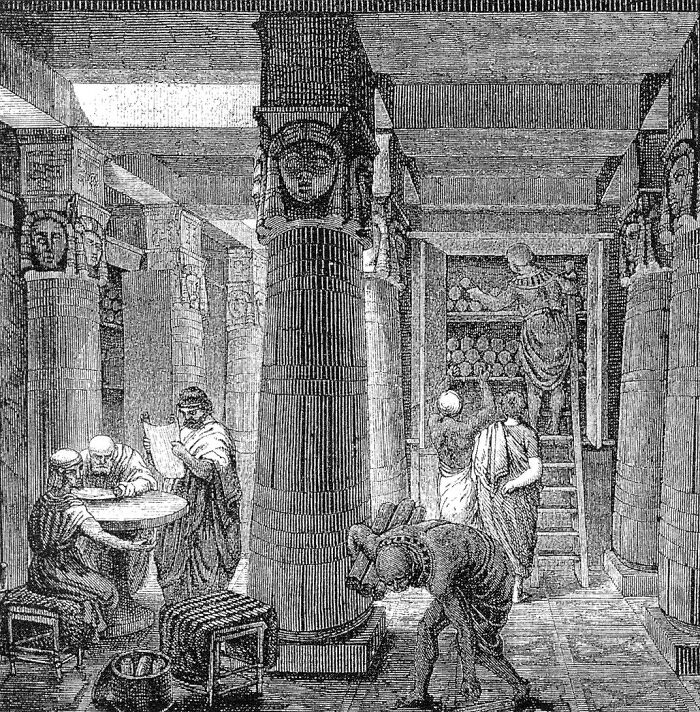
Image credits: Wikipedia
#2 The Cuban Missile Crisis
During the Cold War in 1962, the US and the Soviet Union fought over missiles placed in Cuba. In 1961, the US put nuclear missiles in Italy and Turkey after their sabotage in Cuba a year earlier. To deter a future invasion by the US, Cuba allowed the Soviet Union to place their nuclear missiles in the country. When the US government caught wind of this, a naval blockade was ordered to stop more of the Soviet Union’s missiles from entering Cuba. A secret agreement was eventually reached between the two countries, which involved the withdrawal of the Soviet Union’s nuclear missiles in Cuba in exchange for the US withdrawing its missiles from Turkey and their declaration not to invade Cuba again.
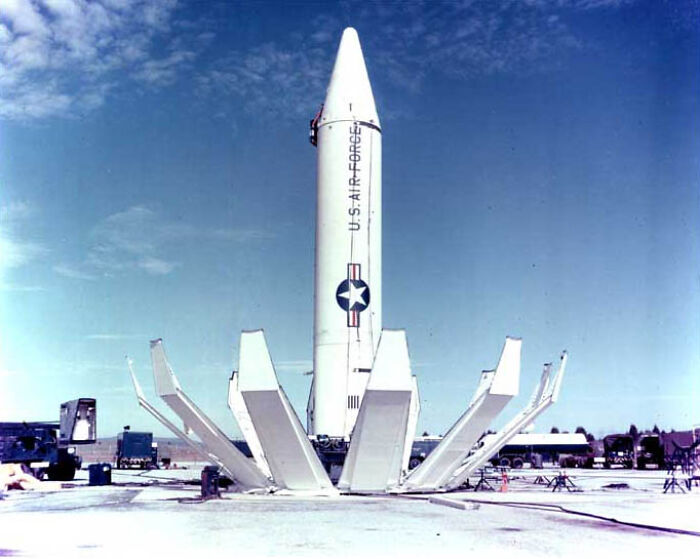
Image credits: Wikipedia
#3 The Sale Of Alaska
Alaska may be a part of the United States today, but it wasn’t always. In 1867, Russia sold Alaska to the US in a deal that surprised many. The Sale of Alaska is remembered as a huge blunder on Russia’s part, due to the vast resources such as oil, gas, and gold found under Alaska’s melted ice.
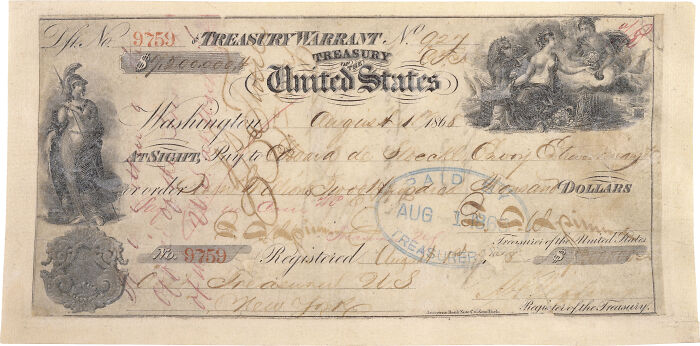
Image credits: Wikipedia
#4 Captain Edward Smith Crashing The Titanic
Not being able to see the icebergs ahead ultimately led to the sinking of the Titanic in 1912. Unfortunately, this caused the loss of over 1,500 people on board. Before the ill-fated journey, David Blair, a second officer, mistakenly left the ship with the keys to the binoculars stored in the cabin when he was reassigned. Without access to the binoculars, Captain Edward John Smith didn’t see the icebergs in time, leading to the unfortunate crash.

Image credits: Wikipedia
#5 Atomic Bombing Caused By A Translation Mistake In Japan
Believed to have been caused by a translation error, the Hiroshima bombing in 1945 resulted in over 140,000 casualties. Allied forces (US, UK, Russia, and China) issued an ultimatum to Japan to surrender and end WWII. Japan’s premier, Kantarō Suzuki, responded with ‘mokusatsu,’ meaning they were reserving comment, but the Allies took this to mean Japan was ignoring the ultimatum. This mistranslation led to them proceeding with the bombings of Hiroshima and Nagasaki.
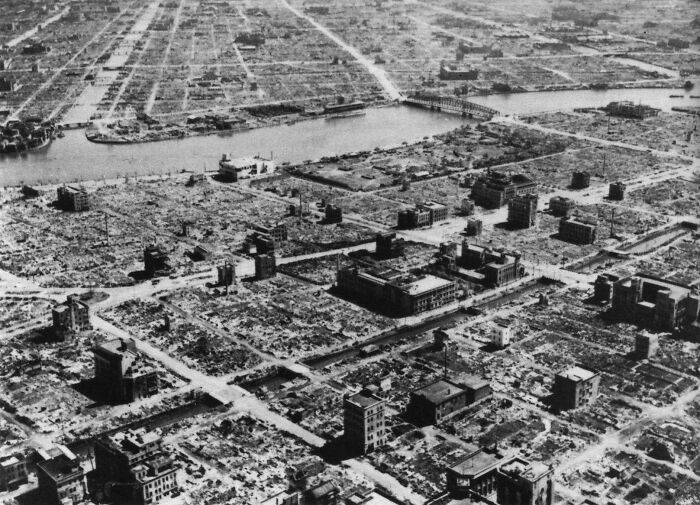
Image credits: Boris Naimushin
#6 Static Build-Up Caused The Hindenburg Disaster
While the actual cause of the Hindenburg disaster in 1937 is still a mystery, the assumption that static discharge ignited the hydrogen airship is generally accepted. Other suspected causes include sabotage, lightning, and engine failure. The explosion claimed the lives of 36 people and brought the airship era to a halt.
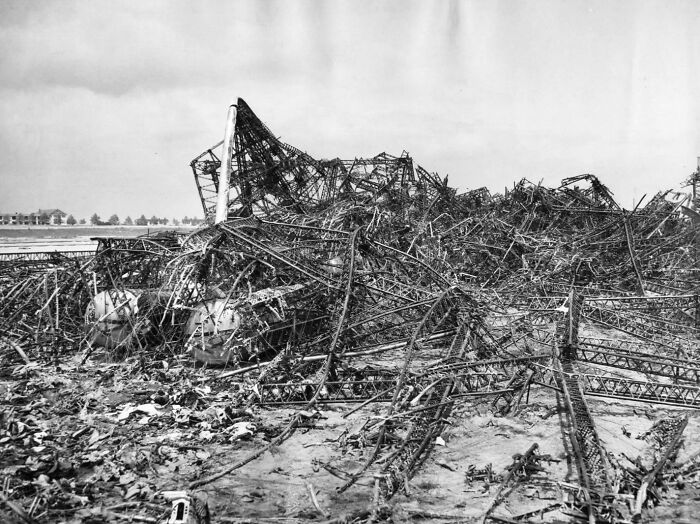
Image credits: Wikipedia
#7 A Wrong Turn Started WWI
On June 28th, 1914, in Sarajevo, a wrong turn led to the assassination of Franz Ferdinand, the Austro-Hungarian Archduke, and his wife. Earlier in the day, a group of assassins tossed a grenade at his vehicle, missing it, but hitting the car traveling behind it. Later on in the day, the Archduke and his wife planned to visit the hospital to check on those injured by the grenade. On their way there, their drivers discovered the itinerary had changed and stopped to figure out which route to take. Unfortunately, Ferdinand and his wife were shot in their stationary vehicle by one of the assassins who spotted them. This assassination is believed to have triggered World War I.
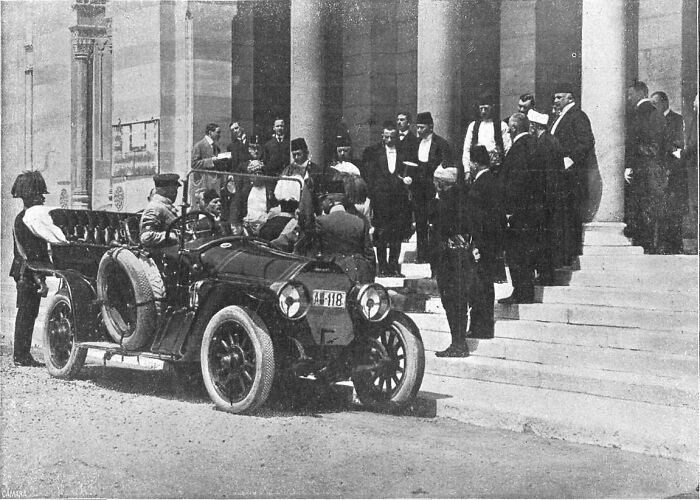
Image credits: Wikipedia
#8 Someone Forgot To Lock A Gate In Constantinople
In 1943, the Ottoman Empire stormed Constantinople for 53 days with an army of 80,000 men. The Byzantine defenses only included about 5,000 men, making it easy for the Ottoman Empire to overpower them. It is alleged that an unlocked gate in the walls of the city made it even easier for the Ottoman invaders to enter the city.

Image credits: KOHA daily
#9 Giving Religions Tax Free Status
Constantine the Great issued the Edict of Milan in 313 CE, which aimed at legalizing Christianity and granting tolerance to all religions. Support to the Christian churches by way of tax exemptions was also allowed. This tradition eventually became the norm in Western civilizations for years to come.

Image credits: VoiceGuyNextDoor
#10 Alexander Fleming’s Accidental Discovery Of Penicillin
In 1928, after returning from a family vacation, Alexander Fleming discovered Penicillin. When clearing his Petri dishes containing Staphylococci, he came across one that had grown a type of mold that wiped-out all the Staphylococci around it. This mold turned out to be a rare strain of Penicillium notatum. Isolating it from the mold proved difficult for many years until professors at Oxford University managed to create Penicillin just in time to save lives in WWII.

Image credits: Wikipedia
#11 The Tokyo Stock Exchange Typo
In 2005, the Japanese government heavily criticized the Tokyo Stock Exchange over Mizuho Securities’ erroneous sale of 610,000 shares for one yen (less than a penny) each instead of one share for 610,000 yen (approximately $5000). This sale was labelled one of the most expensive mishaps in the history of the Tokyo Stock Exchange, costing Mizuho Securities over 200 million dollars.

Image credits: Fox News
#12 Mexico Attacks The Alamo
The Battle of Alamo was an important turning point in the Texas Revolution. In a campaign to reclaim Texas after a 13-day siege, Mexican forces launched an attack on 200 Texian fighters stationed at the Alamo mission. They overwhelmed the Texians after three attempts, almost completely wiping out the garrison. In search of revenge, the Texian army, just a few weeks later, annihilated the Mexicans in a surprise attack called the Battle of Jacinto.
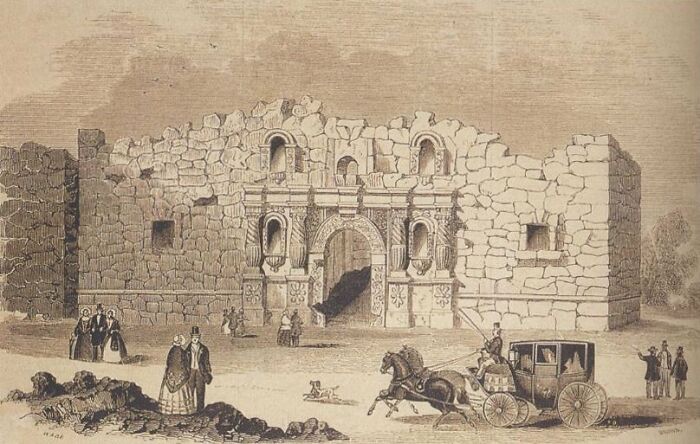
Image credits: Wikipedia
#13 Mao’s Great Leap Forward
The Great Leap Forward was an industrialization campaign launched from 1958 to 1962 by Mao Zedong, chairman of the Chinese Communist Party. People’s communes were formed to ramp up grain production to support the industrialization of urban areas. Unfortunately, the quotas Mao demanded from the farmers in the people’s communes were just too high, leading to the farmers losing their lives to starvation to reach them. This caused the Great Chinese Famine, one of the largest famines in history, which claimed the lives of millions of people in mainland China.
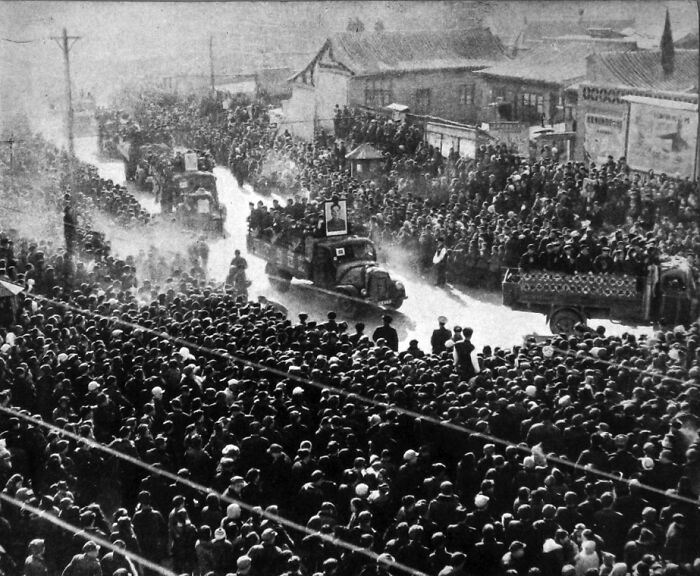
Image credits: Wikipedia
#14 Supreme Court’s Citizens United Decision, Which Made Corporate Bribery Legal
On January 21, 2010, the Supreme Court ruled in favor of the Citizens United argument that barring unions and corporations from funding independent political advertising using their general treasury funds was in violation of the First Amendment’s guarantee of free speech. The decision was immediately deemed historically important and was met with controversy. Some viewed it as a victory for freedom of speech, while others criticized it as an attempt to rewrite campaign finance laws.

Image credits: someSingleDad
#15 Fox Turned Over ‘Star Wars’ Rights To George Lucas
After the success of his film American Graffiti in 1973, George Lucas wrote an original space adventure that would later be called Star Wars. Lucas first approached Universal, but they declined the deal. Only one studio, Fox, agreed to produce and distribute the film. In his contract with Fox, Lucas negotiated for the merchandising rights and sequel control, to which Fox agreed. When Star Wars was released, it became one of the highest-grossing films in history, earning Lucas millions on merchandise, all while retaining full control over the sequels.

Image credits: Mike Fleming Jr
#16 The Piper Alpha Oil Rig Explosion
On July 6th, in the North Sea in 1988, a miscommunication between shift change workers and a maintenance crew on the Piper Alpha Oil Rig led to an extremely costly explosion. The night shift workers were not informed that pump A had been compromised earlier in the day, and subsequently pumped gas into it. The pump couldn’t withstand the pressure, which caused it to explode, leading to 160 casualties and over a billion pounds in damages at the time.

Image credits: Wikipedia
#17 Columbus Missed Asia
Christopher Columbus, an Italian voyager, was determined to find a route from Europe to Asia. He traveled west and eventually stumbled upon the Americas, which he mistakenly believed was the Indies. Although he never actually found a route to Asia, he triggered the boom of European exploration.
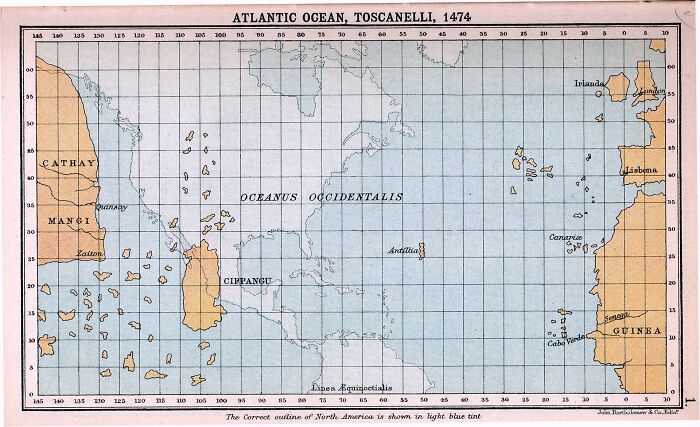
Image credits: Wikipedia
#18 The Mars Climate Orbiter Can’t Convert Its Units
A measurement mismatch caused the Mars Climate Orbiter to disintegrate in 1999. It was launched by NASA to gather information about Mars’s atmosphere, climate, and surface changes. NASA and Lockheed Martin, the spacecraft builder, used two different measuring systems (SI units and US customary units) for the ground software, resulting in the discrepancy between desired and actual orbit insertion, which led to the Orbiter getting too close to the atmosphere.
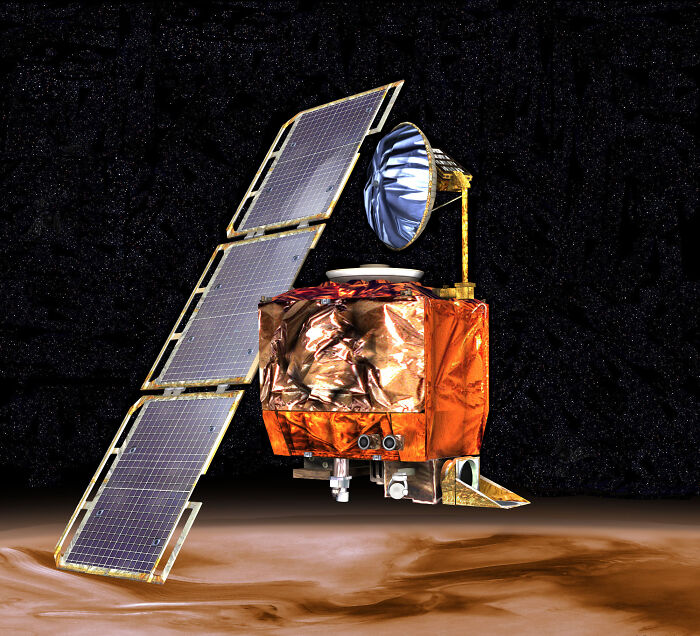
Image credits: Wikipedia
#19 Nasa Ignores Challenger Warnings
The Space Shuttle Challenger was launched by NASA in 1986. It spent only 73 seconds in flight before exploding and leading to the tragic loss of all seven crew members. The cold weather on the day of the launch compromised the spacecraft’s rubber O-rings, causing it to explode. In the months leading up to the ill-fated launch, the SRB manufacturer and NASA managers ignored engineers’ warnings about the risks of launching in cold weather.

Image credits: Wikipedia
#20 George W. Bush Invading Iraq In 2003
The 2003 attack on Iraq by the US sparked an 8-year-long Iraq War, which ultimately gave rise to ISIS. American citizens were heavily divided, with some against the war and others for the war. In its bid to fight terrorism, the US arguably did the opposite.
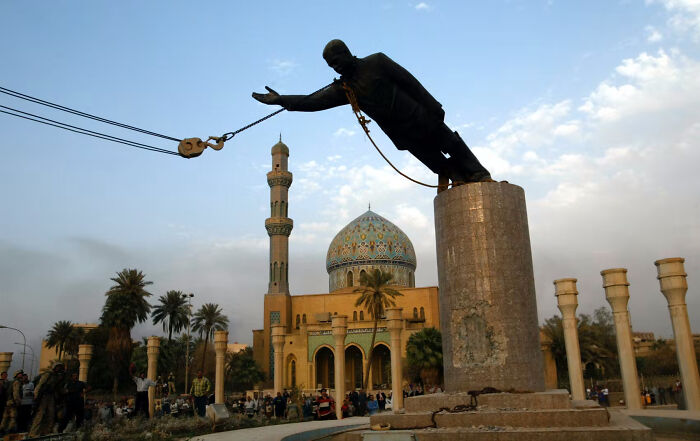
Image credits: Wikipedia
#21 Japan Ignoring Pearl Harbor’s Fuel Tanks, Repair Yards, And Aircraft Carriers
To hinder the US strength at sea, Japan sent over 300 fighter jets and multiple bombers to attack their battleships at Pearl Harbor on December 7, 1941. During the attack, Japan directed most of its fire at the battleships and not at the repair yards, fuel reserves, or even aircraft carriers. After the attack, the US used these resources to repair most of the damaged ships, and as tensions escalated, it used aircraft carriers and submarines to assert its naval dominance.
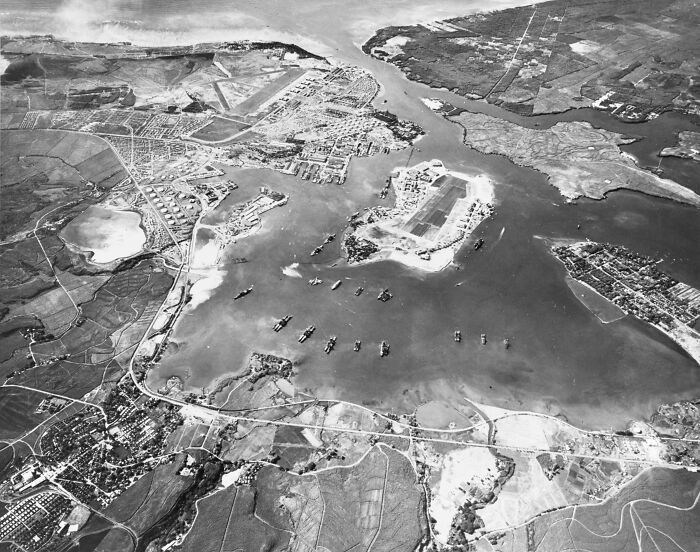
Image credits: Wikipedia
#22 General Pickett Charged Directly Into Enemy Hands
On the final day of the Battle of Gettysburg, General Robert E. Lee ordered about 15,000 troops led by General George Pickett to charge the Union position led by General George G. Meade. Lee didn’t know Meade was already aware of his plans the night before. After moving across the open field, Pickett’s army took heavy fire, leading to the tragic loss of 6,000 Confederate troops.

Image credits: Wikipedia
#23 The Chernobyl Explosion
The Chernobyl Explosion is one of history’s most devastating nuclear disasters, with an estimated cost of over $700 billion. Miscommunication and a lack of safety precautions at the plant ultimately led to the costly explosion that severely affected the lives of many.
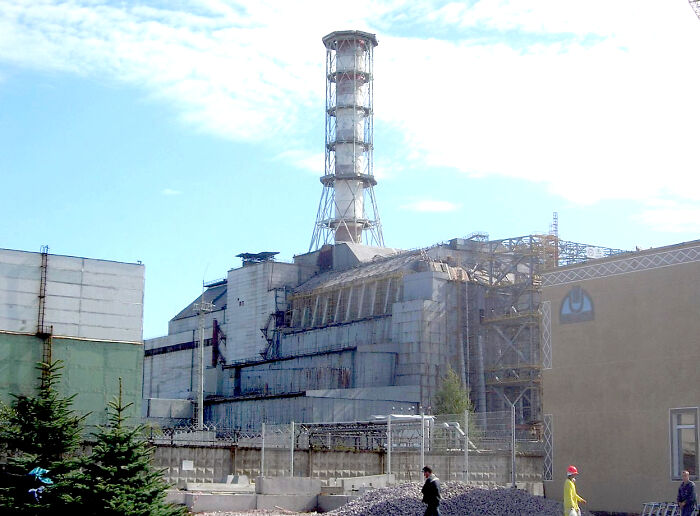
Image credits: Wikipedia
#24 Black Sabbath’s Guitarist Lost His Fingertips In An Industrial Accident
Tony Iommi, the guitarist for Black Sabbath, lost two fingertips on his fretboard hand in a factory accident at 17 years old. Determined to keep playing the guitar, he made thimbles to protect his fingers. The thimbles made him press down on the strings more, producing a heavier sound. This heavy sound paved the way for the heavy metal genre.

Image credits: Wikipedia
#25 A Rushed Public Announcement Brought The Berlin Wall Down
In 1989, on November 9th, Günter Schabowski, an East German official, was tasked with announcing new travel regulations at a press conference. He wasn’t briefed on when they would take effect, and ended up stating they would take effect immediately instead of the following day. His further reiteration of this statement in an interview with Western media sparked a mass exodus to the Wall. Completely overwhelmed, border officials had no choice but to let people through with little to no identity checks. The misinformed announcement made by Schabowski ultimately led to the fall of the Berlin Wall and Germany reuniting in 1990.

Image credits: Wikipedia
from Bored Panda https://ift.tt/YknfPMR
via IFTTT source site : boredpanda